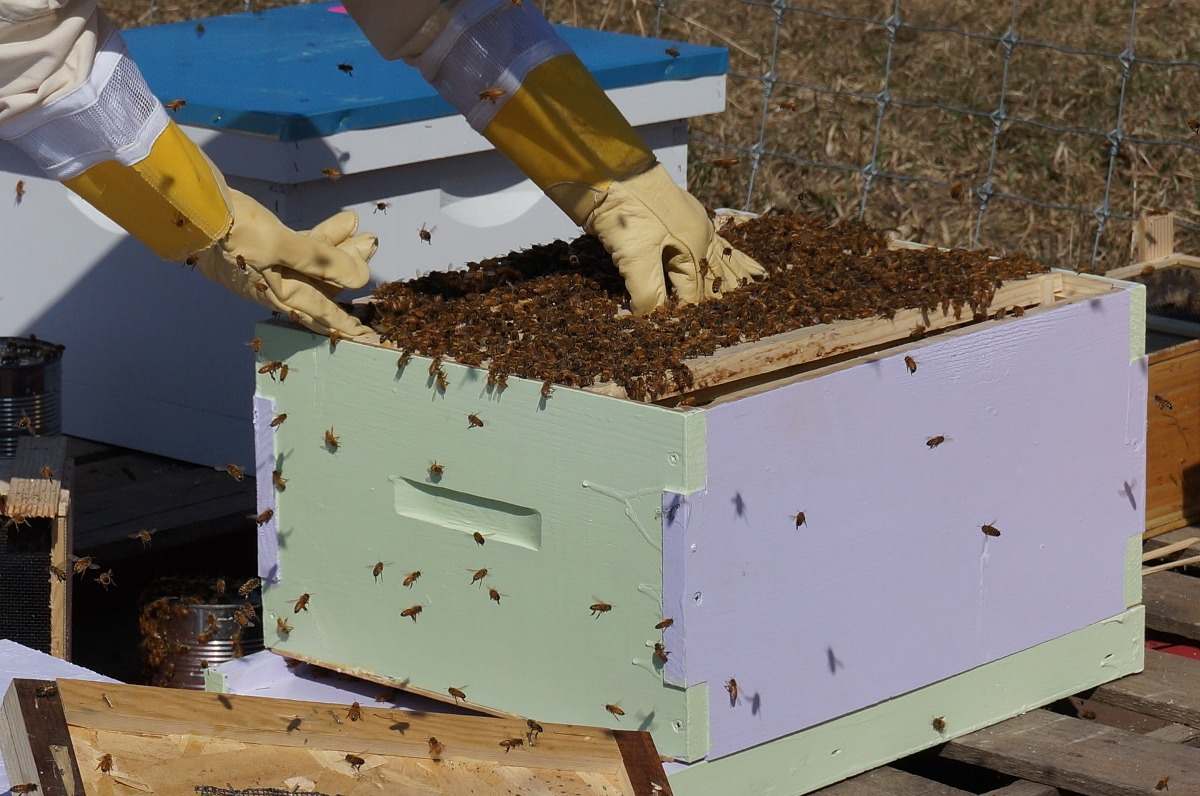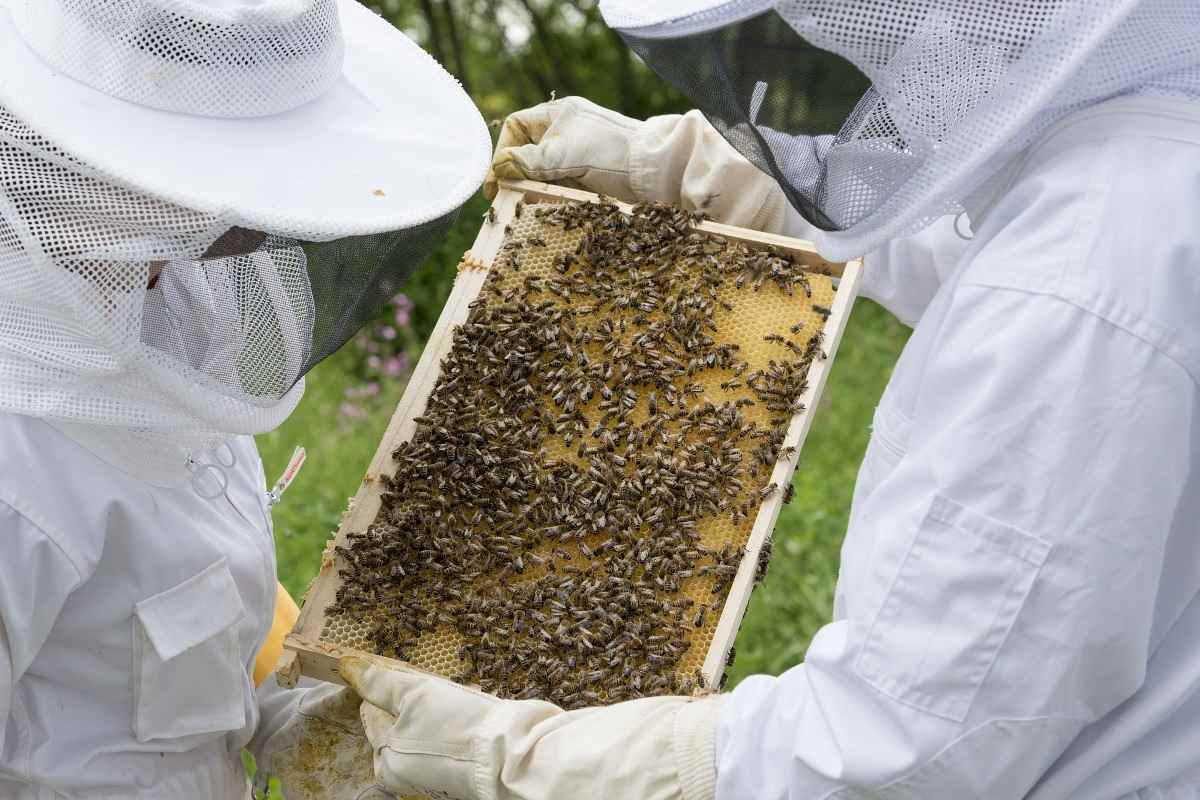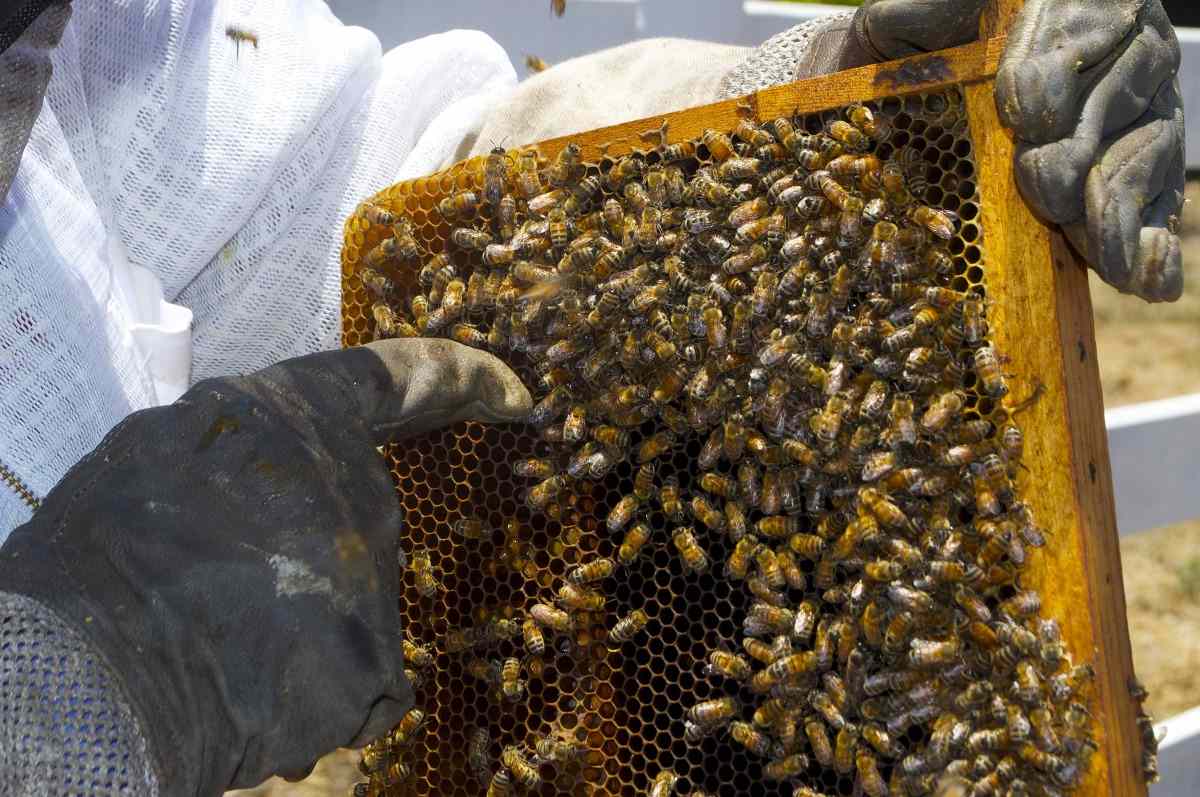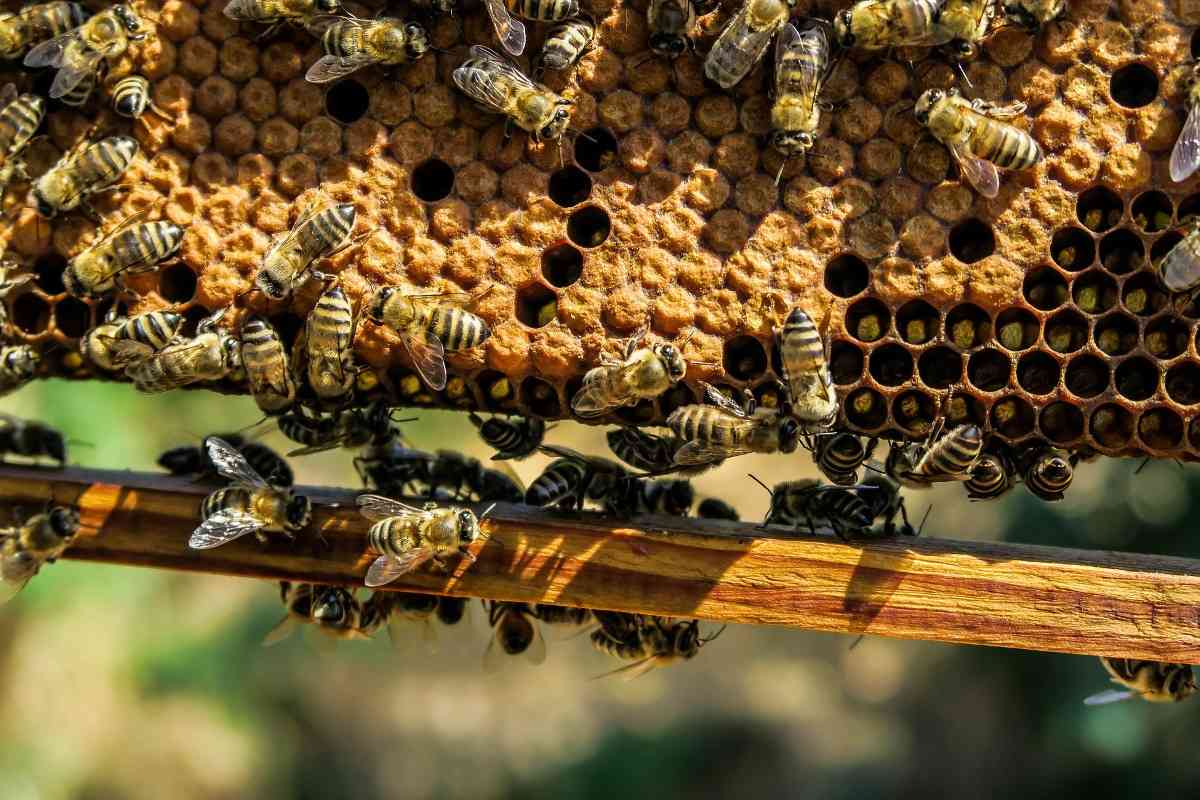Loans and Subsidies on Beekeeping in India
Introduction: Hello Bee farmers, we have some information for you about loans and subsidies on Beekeeping in India. Let us find out the Government schemes (subsidy and loan) on Apiculture and eligibility criteria to avail these benefits.
A guide to Loans and Subsidies on Beekeeping in India
Bee farming in India is turning out as the best Agri-Business, providing employment to many of them in the country. In rural areas, it has become the secondary source of income, especially for farmers. Hence it has gained some importance in terms of Agri-Business, where many of them trying to start honey bee farming in India. If you are also planning the same then go through this blog where you can get all the information needed. If you got to know the details regarding income from the first year itself, you will definitely bat an eye on this Beekeeping. Now we will try to give information on the commercial beekeeping subsidies, and loans and schemes in India.

List of Commercial Beekeeping Loans and Subsidies on Beekeeping in India
If you want to start Beekeeping in India, the government is ready to help. For this Apiculture, there are some boards and National Honey Bee Board India is a prominent one among them. Most of them were benefited from the various schemes and loans of the National Bee Board. Apart from these National Bee Board Schemes, it also provides training to many of them who have an interest in this bee farming business. The Government is providing a 35 percent subsidy on the bee farming business in India. The ones who will get this subsidy have to invest only 5 percent from their pockets.
Commercial Beekeeping Subsidies
Apart from this, the government is also helping in marketing the Honey. This is one of the important stages where bee farmers are facing difficulty. Hence the government is intervening here. The National Bee Board is also coming up with various schemes. All these things are for the benefit of rural farmers. In case, if there are some new Schemes in Beekeeping in India, then we will update here. You can go through these to know more about the Commercial Beekeeping Loans in India.
You should not miss the How to Build a Fish Pond with Concrete.

List of Commercial Beekeeping Loans in India
If you are trying for a loan for beekeeping in India, then you can check the below information. Apart from that, SHGs, NGOs can also get this loan. You have to use this loan money only for setting up units for the production of Honey. You can get the subsidy for this loan from the government bodies like KVIC / KVIB / DRDA. One has to pay back this loan between 5-7 years. You can pay the loan in a quarterly or half-yearly installment. For this loan, the IDBI Bank is giving 11 months gestation period. These are a few of them which provide different Commercial Beekeeping Subsidies and Loans. Furthermore, check the below link to know more about Apiculture Farming in India.
KVIC Schemes
Honey Week, an awareness campaign initiated by Khadi Village Industries Commission (KVIC), concluded on Monday with a workshop on the usefulness of honey and a prize distribution ceremony for the winners of the drawing, recipe making, essay, and slogan writing contests. Hundreds of students from 23 schools and colleges had participated in the competitions. Dr. N S Tomar, State Director (Punjab and Chandigarh), KVIC, announced to provide loan options. 25 lakh to needy youths educated up to Class VIII. Those who do not fulfill the educational qualification may get Rs. 10 lakh to start beekeeping as a full-time business venture under the Prime Minister Employment Scheme.
The government will provide a 35 percent subsidy and the reserved category applicants will be required to invest 5 percent from their own pockets. On the contrary, the initial amount limit for the general category will be 10 percent.
A battery of experts on honey, hospitality, and academics took part in the workshop focussing their attention on the use of honey for a balanced diet and medicines.
Agriculture in India provides nearly 50% of employment in India’s workforce but in turn, contributes about 15% to the country’s gross domestic product. Modi has called for a “sweet (honey) revolution” which, helps to transform farmers’ lives. Apart from teaching basic bee rearing and honey extraction, the KVIC imparts advanced training to select farmers through its Central Bee Research Institute, situated in the western city of Pune. At these sessions, fledgling beekeepers are instructed on how to separate bee pollen, royal jelly, and venom. They learn to travel with their bees from one place to another in search of better flora. The pollen that collects on the legs of bees when they suck nectar from flowers and the royal jelly the critters secrete are rich in protein and often used in nutritional supplements. The pollen can cost about 1,200 rupees per kilogram, while the jelly is worth 25,000 rupees to 30,000 rupees per kilogram.
A kilogram of bee venom produced by the glands associated with a bee’s sting apparatus and responsible for the pain of being stung and can sell for 10 million rupees. It is highly sought after because it is used in cancer medicines. These are very high-value byproducts which can create additional income for farmers.”
In less than three months since the 100 boxes were placed on his family’s farm, Dinesh said, they have multiplied to 125 (the queen bee in each box lays around 2,000 eggs every day), and 1,200 kg of honey has been extracted.
KVIC plans to soon hook up the farmers with the Prime Minister Employment Generation Programme, which can extend loans, subsidies, and training for setting up honey processing plants. Establishing a plant costs 1.5 million rupees, and farmers can receive subsidies worth up to 35% of loans they take out for this purpose. The loans carry a 4% interest rate.
Schemes and Accomplishments under KVIC
- KVIC has paved the way for the development of Micro, Small, and Medium Enterprises. It provides financial aid to the beekeepers through several schemes. They are: Capital Expenditure Loan (CE Loan) on subsidized interest; Working Capital Loan (WC Loan) on subsidized interest; Short-term Stocking
- Rural Employment Generation Scheme (REGP), Prime Minister Employment Generation Scheme (PMEGP), was introduced to upgrade the traditional bee farming methods to scientific methods.
- A set of 12 beekeeping clusters were constructed, by UNDP. It also accompanies with the beekeeping infrastructure for better beekeeping in specified areas.
- The NGOs, SFURTI, and KRDP, implemented 11 beekeeping and 3 Beekeeping clusters, respectively.
National Bee Board (NBB)
You may also like the Rabbit Farming Business Plan.

The ministry of agriculture, department of agriculture cooperation & farmer welfare established the national bee board (NBB) in the year 2000. Though the main motto of the board is to improve pollination and crop productivity through beekeeping, it attributes the following:
- Research and Development of honey processing units
- To sketch schemes and establish training through research institutions
- Production of quality honey – introduction of Phyto-Sanitary standards in terms of bee-product quality
- Migration of honeybee colonies – enabling the longer and safe migration of honeybees
- Creating awareness and organizing training
Research and training on the disease-prone and its medication.
Funds under NBHM Mission
All the Micro, Small, and Medium Enterprises governed by the national bodies approve an amount of Rs.49.78 Crores every year through the KVIC. The amount is allocated for the employment and income to rural youth, both men and women for preserving the honeybee environment. The government encourages the standardization of beekeeping by allocating larger funds. All the honey keeping missions focuses not only on the enhancement of beekeeping but also on the generation of the 11,000 employment every year.
In case if you miss this: Government Loan for Sheep Farming in India.
Eligibility Criteria for NBHM Funding

- Checklists that are considered for the selection of beneficiary under the honey mission,
- The applicant should belong to SC/ST/NE-State candidate.
- Applicants with a valid Aadhar Card and the age between 18 years and 55 years are only eligible to apply under the mission.
- Only one in a family will be eligible, who shall be provided with a set of 10 bee boxes, 10 bee colonies, and tool kits.
- The beekeepers already maintaining more than 10 bee colonies are not considered to be eligible.
- KVIC/KVIB/NABARD/KVK(s)/Agriculture – Horticulture Board’s trained candidates shall be preferred.
- The beneficiaries who are availing/availed the benefits from any other Government Schemes shall not be considered eligible.
- Beekeepers who failed to multiply their bee colonies from 10 to 18 over a year should surrender all their bee colonies, hives, and kits.
Documents Needed
- A valid Aadhar Card
- Applicant’s photo identity with Voter ID/Ration Card. A driving license shall be considered in case of non-availability of an Aadhar card.
A Government declaration document is required for those who had availed/availing the government benefits to revoke them as a beneficiary.
That’s all folks about government schemes for loans and subsidies on beekeeping in India.
In case if you are interested in this: How To Grow Strawberries in Greenhouse.
- Types of Pesticides Used in Agriculture: A Beginner’s Guide
- Economical Aquaculture: A Guide to Low-Budget Fish Farming
- 15 Common Planting Errors That Can Doom Your Fruit Trees
- How to Make Houseplants Bushy: Effective Tips and Ideas
- Innovative Strategies for Boosting Coconut Pollination and Yield
- Pollination Strategies for Maximum Pumpkin Yield
- The Complete Guide to Chicken Fattening: Strategies for Maximum Growth
- Natural Solutions for Tulip Problems: 100% Effective Remedies for Leaf and Bulb-Related Issues
- Revolutionizing Citrus Preservation: Towards a Healthier, Greener Future
- Natural Solutions for Peony Leaf and Flower Problems: 100% Effective Remedies
- Maximizing Profits with Avocado Contract Farming in India: A Comprehensive Guide
- Natural Solutions for Hydrangea Problems: 100% Effective Remedies for Leaf and Flowers
- The Ultimate Guide to Choosing the Perfect Foliage Friend: Bringing Life Indoors
- From Sunlight to Sustainability: 15 Ways to Use Solar Technology in Agriculture
- The Ultimate Guide to Dong Tao Chicken: Exploring from History to Raising
- The Eco-Friendly Makeover: How to Convert Your Unused Swimming Pool into a Fish Pond
- Mastering the Art of Delaware Chicken Farming: Essentials for Healthy Backyard Flocks
- 20 Best Homemade Fertilizers for Money Plant: DIY Recipes and Application Methods
- How to Craft a Comprehensive Free-Range Chicken Farming Business Plan
- Brighten Your Flock: Raising Easter Egger Chickens for Beauty and Bounty
- How to Optimize Your Poultry Egg Farm Business Plan with These Strategies
Yes I’m interested to start the bee project.. so kindly provide me the detail thanks
Daya Society is registered NGO and engage in procurement of Milk from several districts of Bihar. More than 4000 rural farmers are associated with us. While looking for more Income Generation option for rural farmer, I came to know about Beekeeping.
I found it very useful for farmers. It will help their yield and support in Income generation also.
Please guide us that where we move for registration or other formalities so that we can benefit our farmers and raise their contribution in nation building.
Yes I am interested pls guide
I am also interested in bee farming.please guide me.
I’m interested from Assam
Where I can find training
I am managing director in NGO.
I am willing to associate with bee keeping
activities and also in awareness activities.
Kindly guide me in this profile.
I am from Tiruvuru area from Krishna dist of Andrea Pradesh . I am 67 yrs. old and taken up cultivation after retiring from job. Presently pady and chillies and cotton crops on my own lands . Attracted to go for Apiculture . To start with , like to set up 1 or 2 boxes at my residence garden to know better about the process
Also would like to have training .
I know , loan will not get for Apiculture . Further , l would like to set up few more boxes of I succeed in the process.
Please advise me where I will get boxes and guidance . My health is OK and energetic and interest to do any task .
Job profession -Mining Geologist.
I am interested in Bee Keeping . Please advise me about the details.
very good information
I am interested in be keeping pl gide
I am intersted
Iam intersted in Bee keeping .Please advice me about in details.
What is the registration process for general candidates please advice.
Requesting for a mail as a suggestion from your end.
Thank you
Im interested in honey bee farming from machilipatnam andhra pradesh. Please provide further information about training and farming
What is the registration process of genreal candidate please advice I belong to haryana distt fatehabad Tohana adivce ee about it’s detail and all working processing sir
It’s really very helpful knowledge about beekeeping. Thanks a lot.
I am also intrested send me contact and details i am from telangana hyderabad
Hi sir I am from Assam I am interested for honey farming please guide me how to get loan for bee keeping
I am interested in beekeeping.
Residing at Satara Maharashtra. Please guide.
Hello sir,
It is really made me to have full knowledge of about beekeeping business…
I’m from Uttarakhand and I am interested in beekeeping please send me contact details and guide me how to get a loan for the business of beekeeping…
Dear Jagdish Reddy, could you please provide me your email, as I am fed up with the present job and interested to start Apiculture farming.
Regards
Dr Panyam Mallikarjuna Reddy
I want to start can you provide
full informationn about beekeeping what is cost of starting month and anyone who are doing that in madhya Pradesh
I am very interested in bee keeping and have started taming bees since 2020. I have now five hives, Pls guide to be professional in this field,
I am planning to start a beekeeping business in my village, kindly share information like required area, total cost, kit charges, training cost & government subsidiary slap for general category farmer.
i am very much interested in Bee farming please Guide in the right direction, live in Dharwad, and we do have a Agriculture University too
Hi Sir, How can get the loan for Beekeeping at vellore farmer.
I am planning to start a beekeeping business in my village , kindly share information like required area , total cost , kit charges , training cost & government osidiary slap